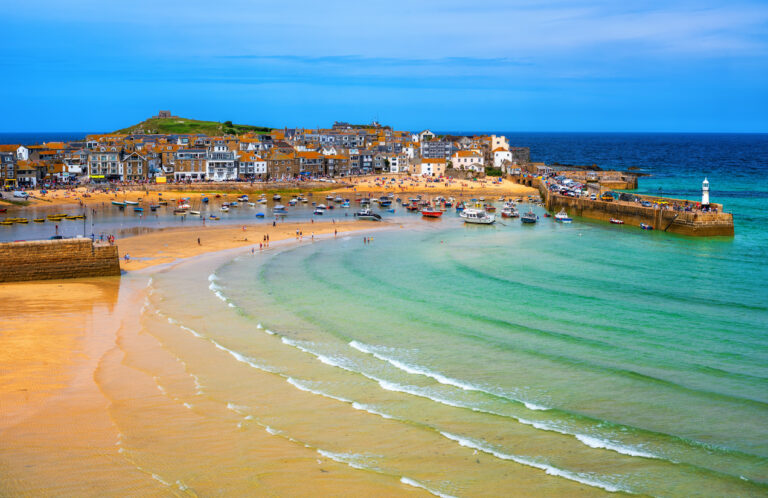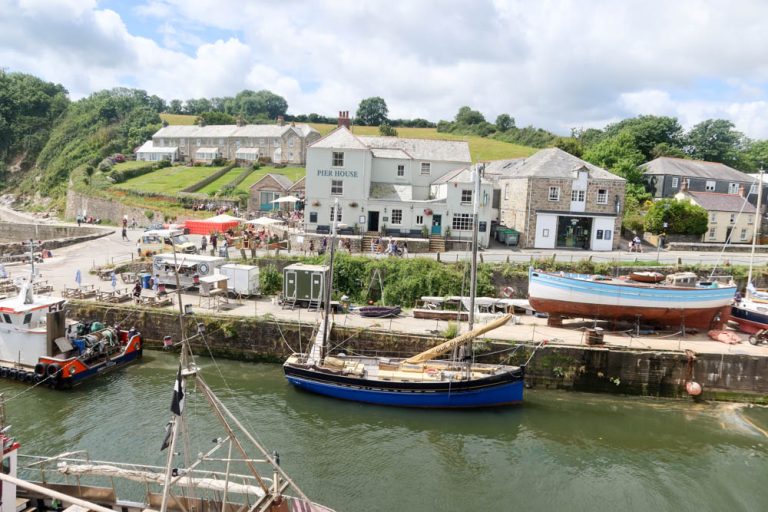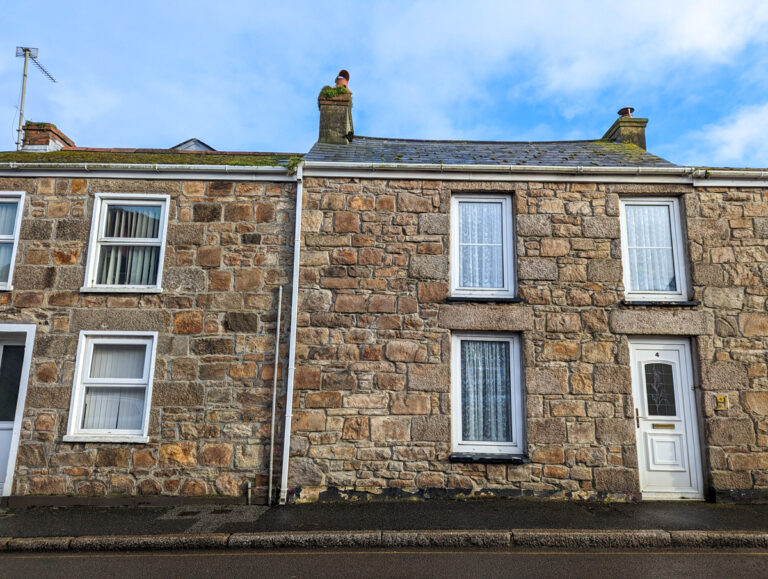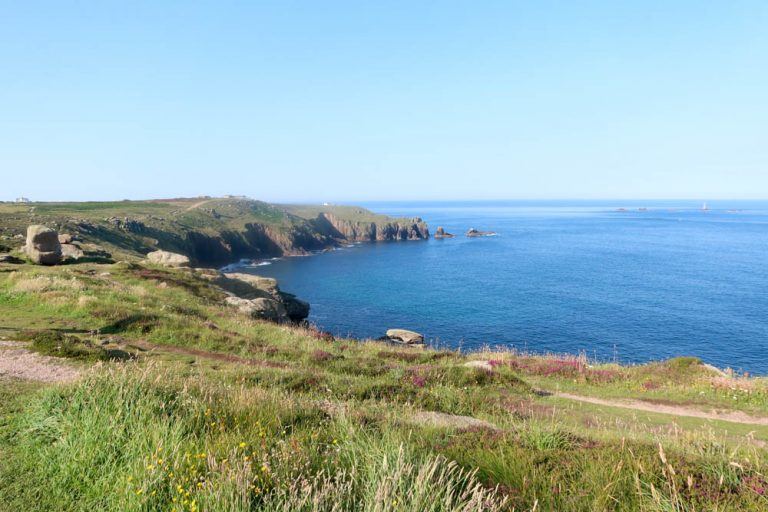Is Cornwall worth visiting? Pros and cons (expert tips!)
Is Cornwall worth visiting? I’m a Cornwall expert – I know the region like the back of my hand and have visited virtually every town, village and beach. So, here’s my full assessment on whether you should visit Cornwall!
Gaze at the stunning coastline, walk around picturesque fishing villages or go trekking on the wild moorland.
Cornwall’s a natural playground with some of the UK’s finest nature, but it’s also brimming with cultural charm, atmospheric pubs and glorious seafood restaurants.
If you’re starting to plan a trip to the South West, you might wonder “should I visit Cornwall”?
You’ve come to the right place. My family are from the region, and I live in neighbouring Devon, so I visit at least once a month and have been doing so my whole life. I’ve been to pretty much every town multiple times, have seen Cornwall throughout the seasons and have visited with family, friends, my partner and solo.
The short answer is yes, for most people Cornwall is worth visiting: for beaches, history, culture, food and hiking.
However, there are a few things to consider before planning a trip there, like how far it is, the price (which can be high) and how crowded it can be in peak season.
I’ve explained the best reasons to visit Cornwall in detail in this blog post, along with information about the disadvantages of visiting and what kind of people it’s best for.
Reasons to visit Cornwall
Are you thinking of visiting Cornwall? If so, epic beaches, rugged moorland, charming fishing villages, fun family attractions, world-class hiking and surfing and delectable food and drink will be at your fingertips!
Here are all of my favourite reasons why you should plan a trip to Cornwall.
Beaches
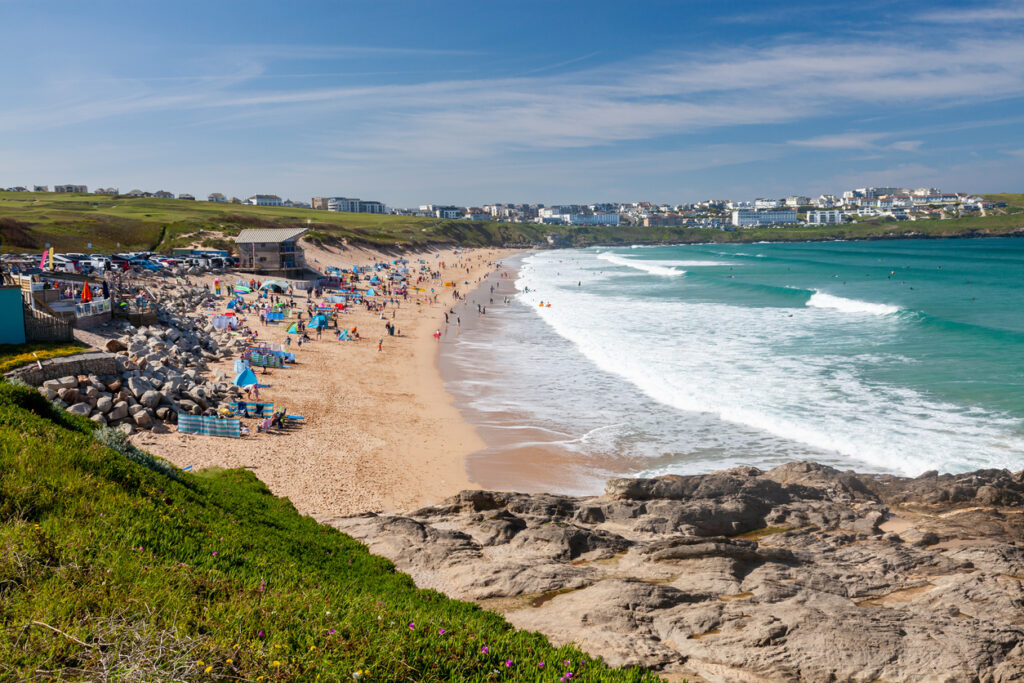
What’s Cornwall most famous for? Pasties, tin mining, and beaches!
In Cornwall, you’ll find long sandy stretches like Fistral Beach and Perran Sands, along with hidden coves like Readymoney in Fowey or Kynance Cove on the Lizard.
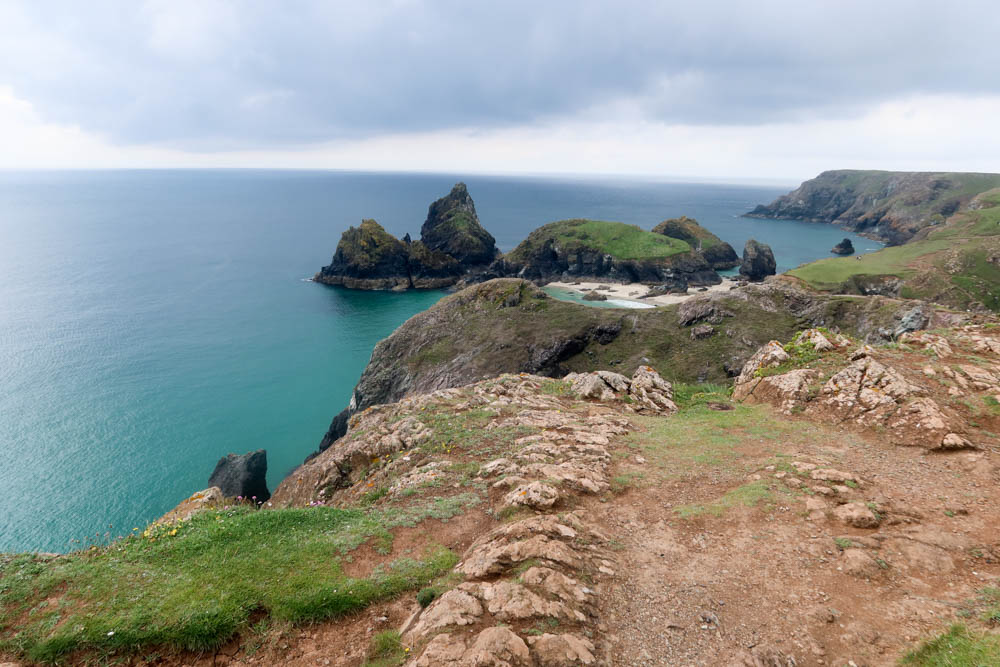
For the UK, Cornwall’s beaches really are in a league of their own. The north has chiselled, jagged cliffs (thanks to their position on the tumultuous Atlantic Ocean) and the south boasts a subtropical climate with wide-spanning stretches of sand.
All of Cornwall’s beaches have their own character, but you’ll find plenty with golden, powdery sands and bright blue waters – some even have palm trees.
If you’re looking for somewhere to enjoy Britain’s coastline, there’s nowhere better than Cornwall.
Moorland
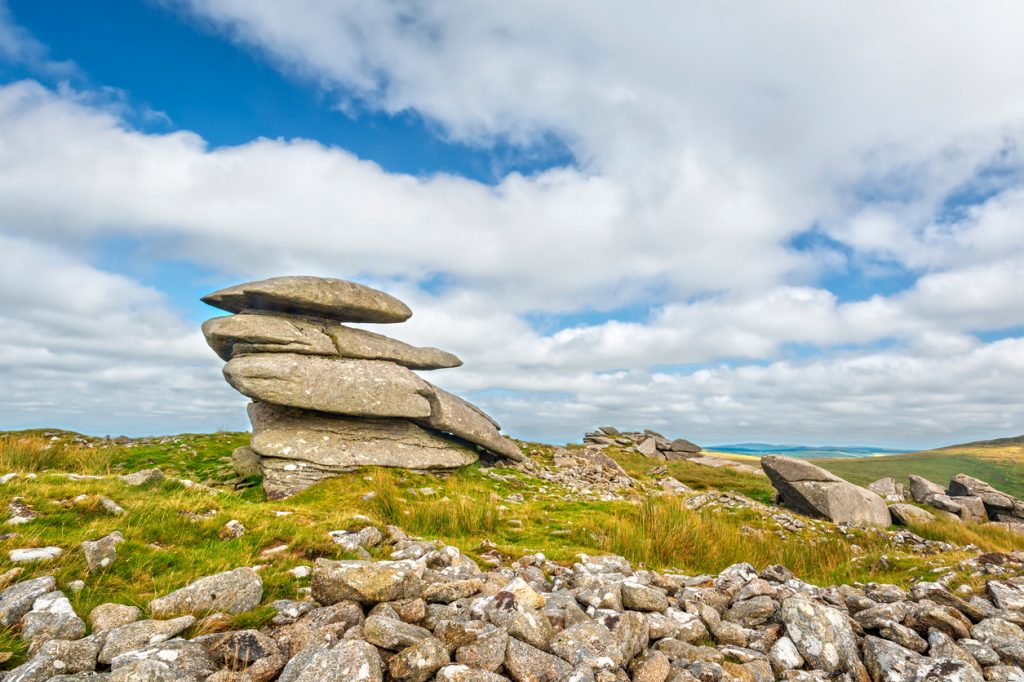
Inland Cornwall is dominated by Bodmin Moor – a wild, rocky landscape that’s perfect for hiking or road-tripping.
It’s not as famous (or as expansive) as Dartmoor in Devon, but you’ll find ancient stone circles and prehistoric sites here, along with craggy hills like Rough Tor and Brown Willy – the highest peak in Cornwall.
Dartmoor’s nature certainly gives visiting Cornwall another dimension. I love hikes on the moorland, followed by warming up in the pub at the legendary Jamaica Inn. It’s the perfect autumnal activity!
Celtic Culture
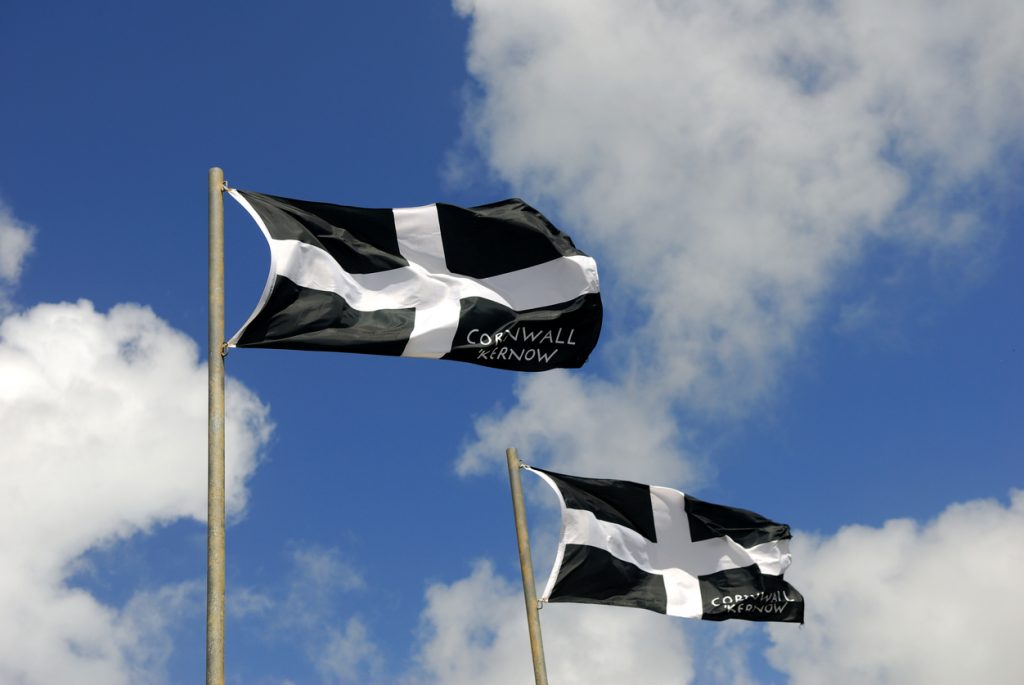
Travellers come to Cornwall for its beaches and nature, but return for its Celtic culture.
Like Scotland and Wales, Cornwall is one of the Celtic nations. It used to be fairly independent from England, with its own language, laws and customs, but was gradually assimilated into English culture.
Cornish people (myself included!) are proud of their heritage – we’re actually a recognised minority group in the UK, and some people even debate about whether Cornwall is part of England.
There are plenty of ways to engage in the Celtic culture in Cornwall; visit for St Piran’s Day (the day of Cornwall’s patron saint) on 5th March, see parades like Obby Oss in Padstow or listen out for the Cornish language; some signs are even translated into the tongue.
Cornwall’s distinct Celtic culture adds another dimension to tourism here, making it a fascinating place to explore and learn about.
Fishing Villages
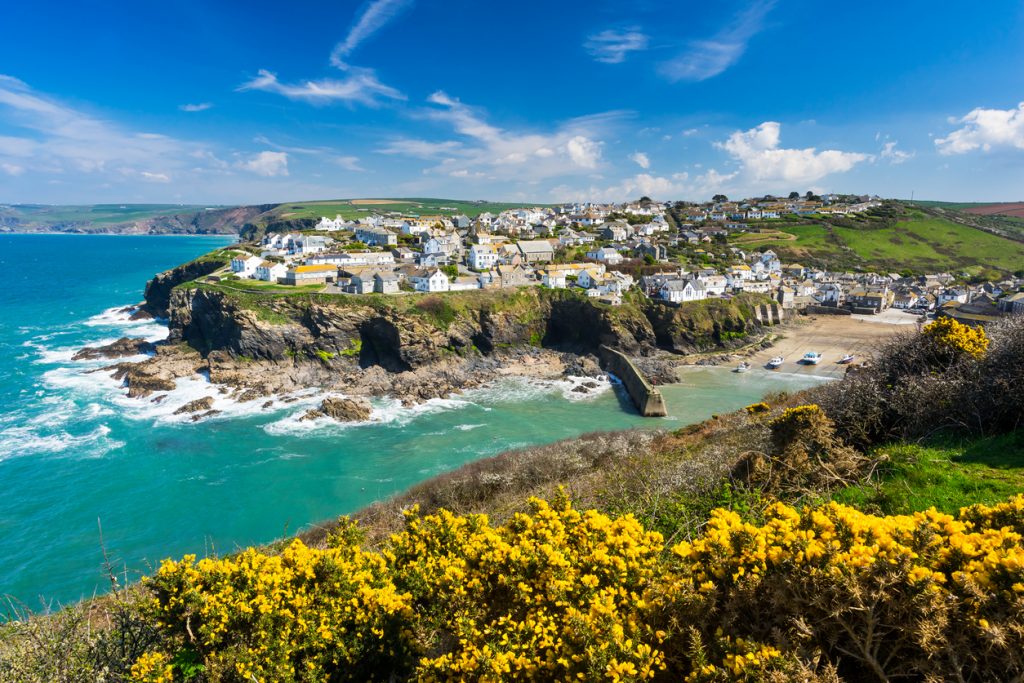
Nowhere does picturesque fishing villages like Cornwall.
Many of these villages have buildings dating back to the 16th – 18th centuries, and each has its own unique stories and history.
For example, Port Isaac is where Doc Martin was filmed, and Mousehole was burned by the Spanish during the armada; nearly all of the village’s current buildings were built after this time.
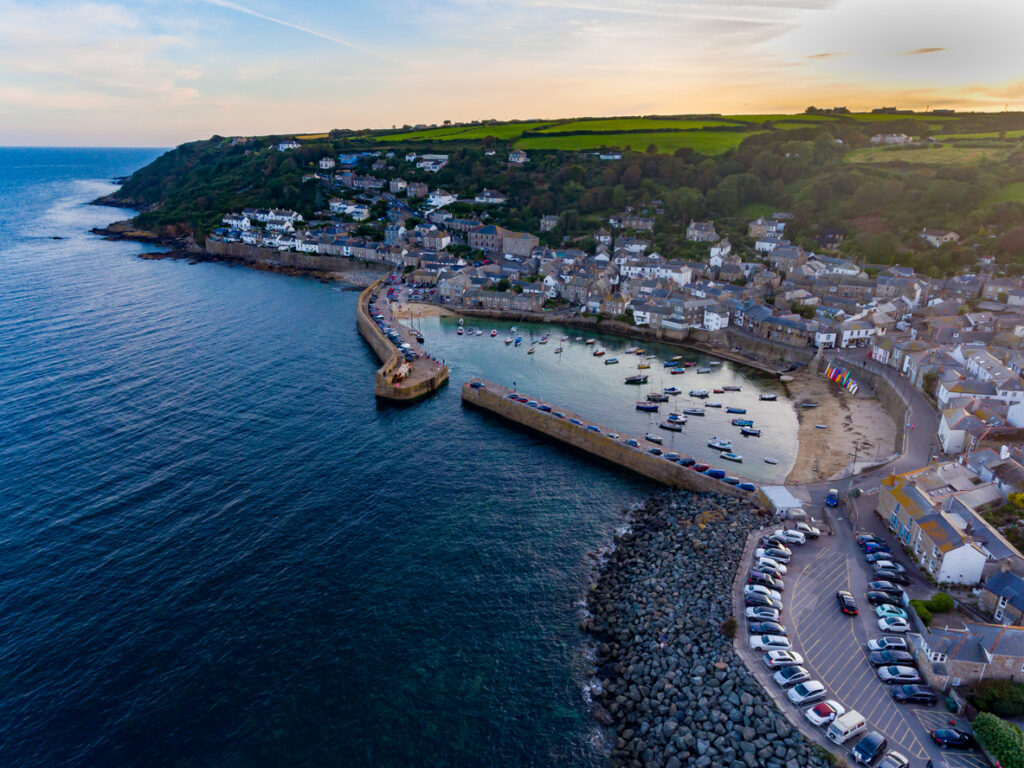
The ideal spot for photography, in Cornwall’s fishing villages you can enjoy quintessential Cornish views from steep vantage points, head out on boat tours or enjoy a pub lunch in an atmospheric pub.
These fishing villages are also dreamy places to stay, especially if you’re travelling as a group, with family or with a pet.
There are tonnes of dog-friendly cottages in Cornwall that are suitable for young or old guests and the most scenic and traditional are located in glorious locations like Mousehole and Port Isaac!
Family Attractions
Cornwall’s got tonnes of family-friendly attractions.
Whether you want to take a whirl on the rides at Flambards Theme Park, see the animals of Newquay Zoo or walk over a rope bridge in an indoor rainforest at the Eden Project, this region is ideal for a holiday with kids!
Most of the family-friendly attractions are suitable for all-weather – they’re perfect to entertain your kids with if you’re visiting Cornwall in the rain.
Hiking
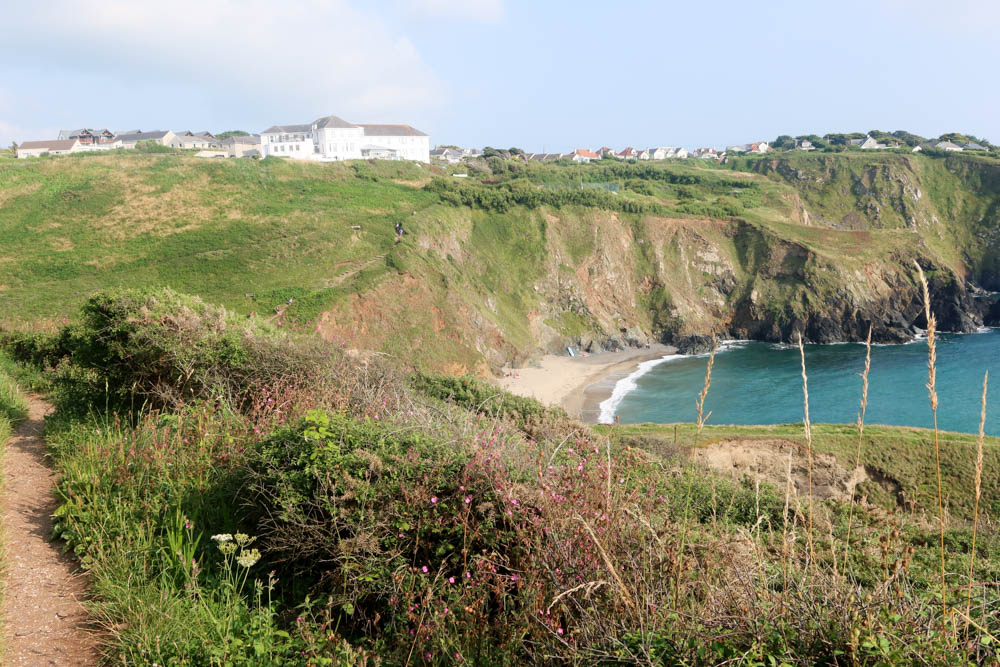
Are you a keen hiker? From the 400-mile-long coast path to the wilds of Bodmin Moor, Cornwall has plenty of hiking trails to relish.
I’ve hiked most of the Cornish coast path, which is a must-do if you love coastal scenery, dramatic cliffs and hidden beaches.
Some of my favourite hiking trails on the coastline include Boscastle to Tintagel, St Ives to Zennor and Rame Head to Cawsand and Kingsand.
You can also head inland! The Camel Trail is a flat route that follows an old railway line, or if you want something a little more challenging, trek to the top of Rough Tor.
Surfing

If you want to take to the waves in the UK, there’s really nowhere better than Cornwall.
Not only does it have dramatic Atlantic waves, but it also boasts fantastic surfing infrastructure, with surfboard rental shops and schools.
The best surfing beaches in Cornwall include:
- many of those around Newquay, such as Fistral Beach, Watergate Bay and Perranporth,
- St Ives’ Porthmeor Beach
- Bude’s Widemouth Bay
- Sennen Cove near Land’s End
- Praa Sands Beach, which has some of the best waves for beginners
Some of these beaches have world-class surfing, with The Cribbar wave in Newquay reaching 12 metres, so grab a board, and either take a lesson or hit them independently!
Food

Sample succulent seafood or bite into juicy pasties; Cornwall has a myriad of exceptional food to enjoy.
Try fish dishes made with Newlyn’s catch of the day, sit on the sands and bite into crispy fish and chips, eat traditional pasties or sample cream teas with lashings of cream and jam. Remember, if you’re in Cornwall, the jam goes on first!
I don’t eat fish or meat, so I don’t eat quite a lot of traditional Cornish food; however, these days you can get vegetable pasties without the beef and even “to-fish” and chips.
Who is Cornwall Best For?
Whatever your group dynamics, Cornwall delivers! There’s an abundance of attractions for people of all groups:
Families
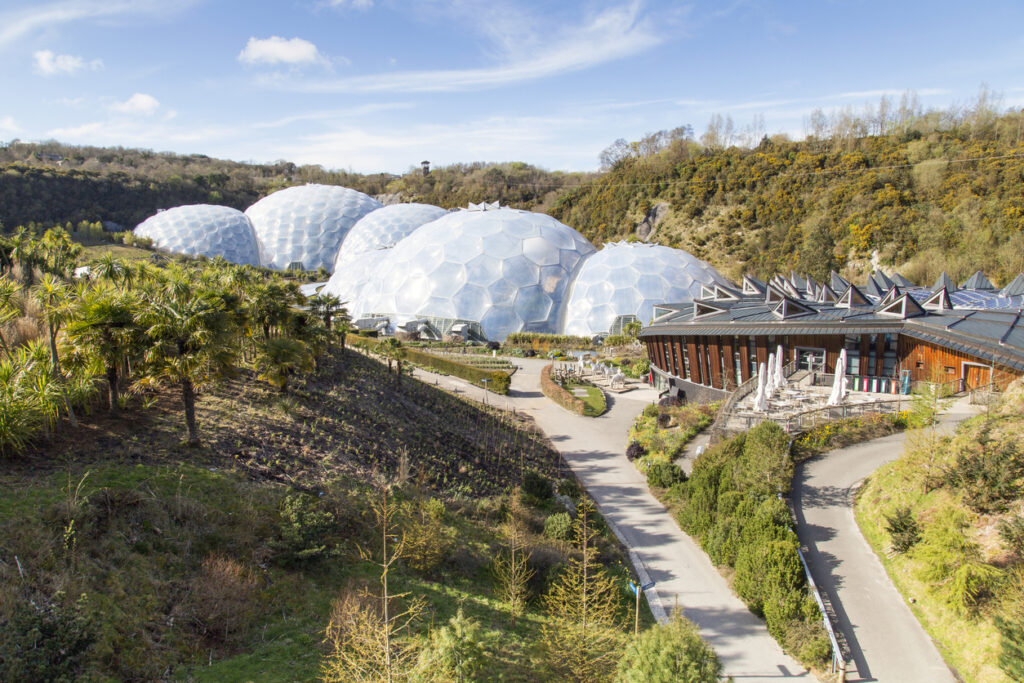
Cornwall’s jam-packed with family-friendly attractions; visit Newquay Aquarium (one of the best things to do in Newquay in the rain), explore farmyards like Greeb Farm and, for older kids, visit attractions like the foreboding Bodmin Jail.
Much of Cornwall’s accommodations are family-friendly – there are lots of campsites with playgrounds, swimming pools (some with slides), arcades and kid’s clubs – or you can opt for hotels with family rooms.
Solo travellers
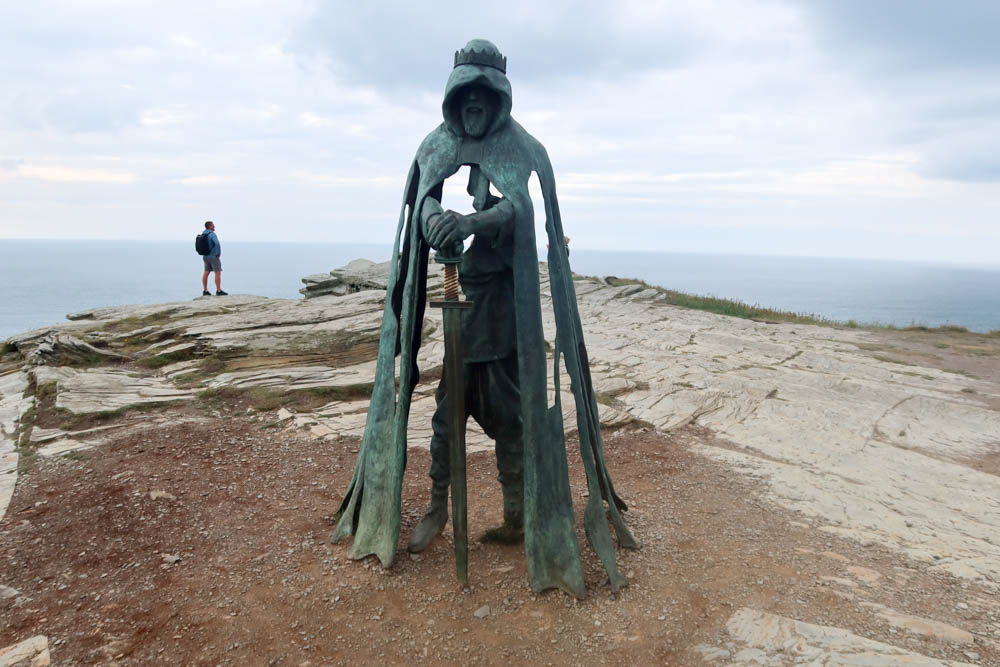
There’s quite a lot on offer for solo travellers in Cornwall. The region has a variety of hostels, including a few run by YHA. Partake in walking tours in places like Falmouth, Penzance and Mousehole, or travel around and visit attractions like Tintagel Castle and Lanhydrock.
The only downfall to Cornwall for solo travellers is that the public transport situation isn’t great. If you aren’t driving solo and want to utilise the public transport system, I’d recommend sticking to places on the GWR railway system, such as Penzance, St Erth and St Ives, Newquay and Looe.
Couples
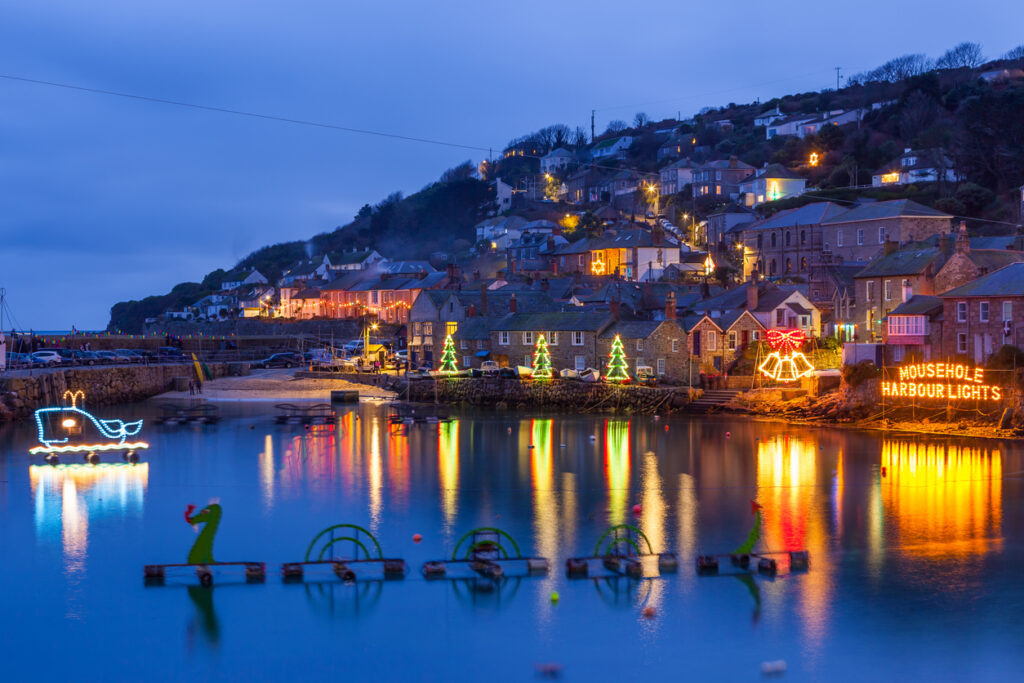
Couples will adore Cornwall. There’s an abundance of romantic coves and secluded beaches. Plus, some of Cornwall’s best luxury hotels have vistas of the spectacular coastline, many with features like jacuzzi baths with a view!
Towns like Padstow boast a range of high-quality restaurants – Padstow is Rick Stein’s stomping ground – which are ideal for date nights.
Older travellers
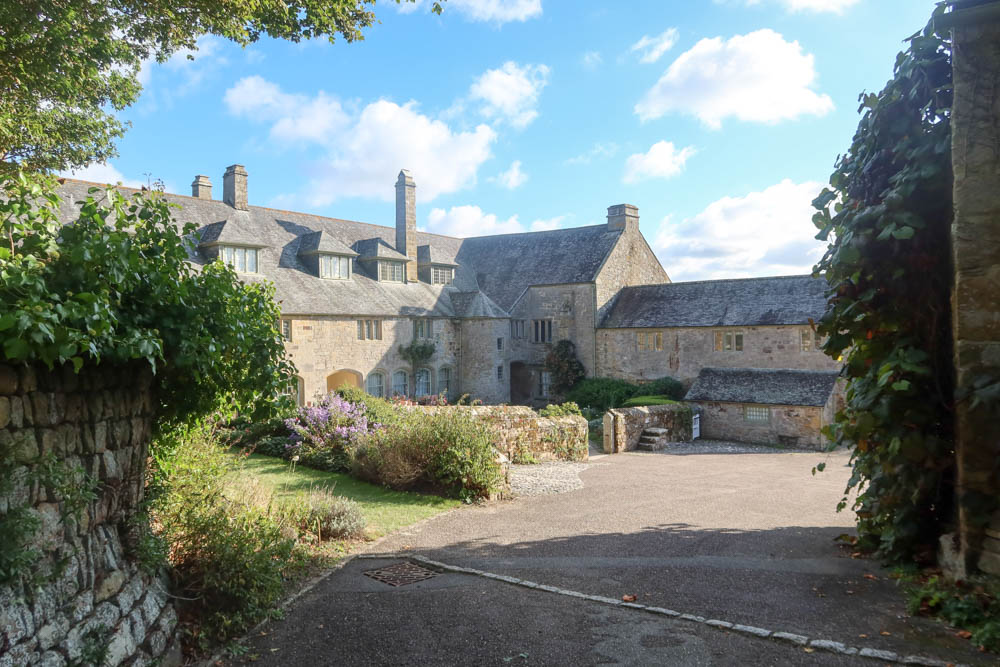
My Grandma was Cornish (although she moved to Devon) and I visited Cornwall countless times with her. She always loved gentle walks in the fishing villages, cosy cafes serving afternoon tea and National Trust properties such as Trerice.
As there are so many attractions and charming towns and villages, there’s plenty for older travellers to enjoy.
Groups
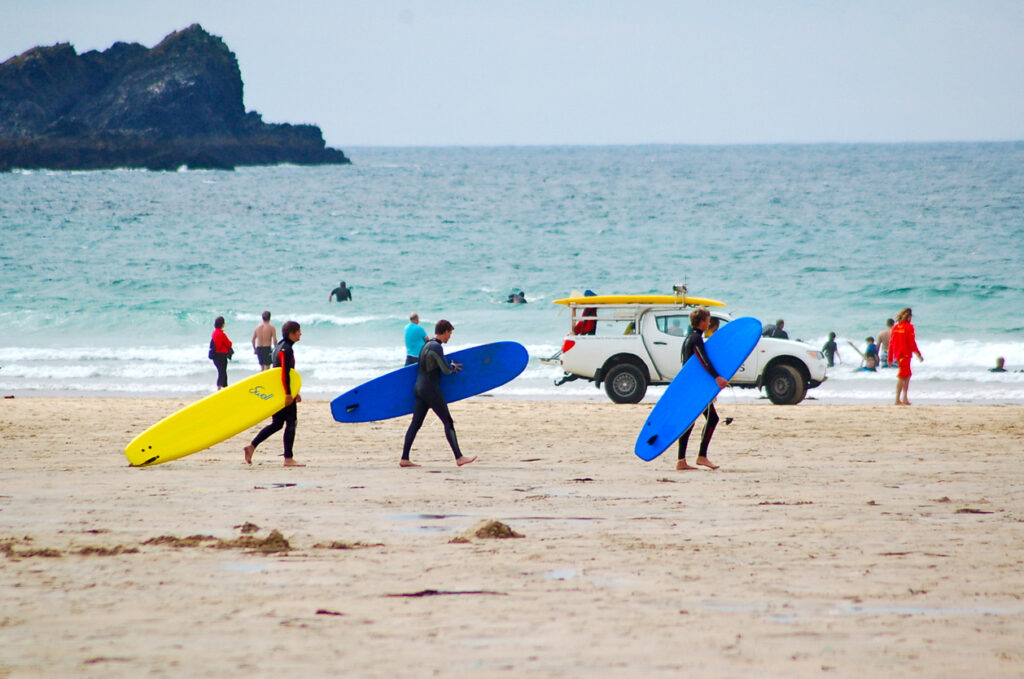
If you’re travelling in a group, you might want to stay somewhere like Falmouth or Newquay, towns with buzzing centres, an abundance of restaurants and decent nightlife (although Cornwall’s nightlife is nowhere near as good as other spots in the country).
You could also book a group house – although I’d recommend booking with a Cornish company to avoid supporting second homes, which is a big problem in the region.
Disadvantages of Visiting Cornwall
Cornwall’s epic, alluring and fascinating (and I love it with all my heart!), but there are a few disadvantages to visiting the region.
Here are some of the main reasons to NOT visit Cornwall.
Crowds

This won’t be a problem if you’re visiting Cornwall in winter, but in the summertime, the region’s constantly heaving with tourists.
The roads aren’t made to accommodate this many tourists, meaning that they can become congested.
Prices can soar and accommodation can be hard to come by, especially if you’re booking in the school summer holidays.
This can cause a lot of issues for people who live there; we never visit our family in August because it’s just too busy! So, I’d recommend visiting Cornwall in September, May or June rather than peak summer, to avoid the crowds.
Weather
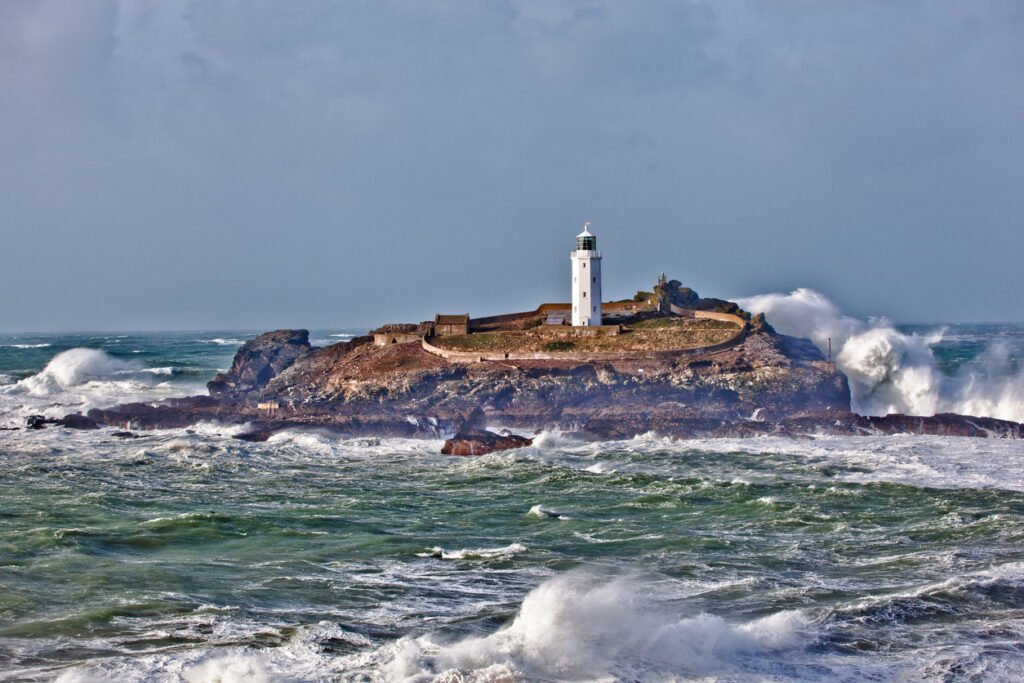
Contrary to popular belief, Cornwall isn’t usually warmer than the rest of the country in the summer months!
It’s year-round climate is milder than places like London, but that means that winters are warmer and summers are cooler.
This can be pleasant, particularly when the barometer in London reaches 40C – it usually sits in the late 20s in Cornwall.
However, Cornwall’s a peninsula sticking out into the Atlantic, so the weather can be turbulent throughout the year! You might experience high winds and storms, or Cornish mizzle, which is a mix of mist and drizzle.
I wouldn’t necessarily say the weather’s a reason not to visit, but don’t think that because Cornwall’s a beachy destination, the weather’s always perfect! It can be quite wet in Cornwall, even in the summer – although there are plenty of sunny days too.
Cost
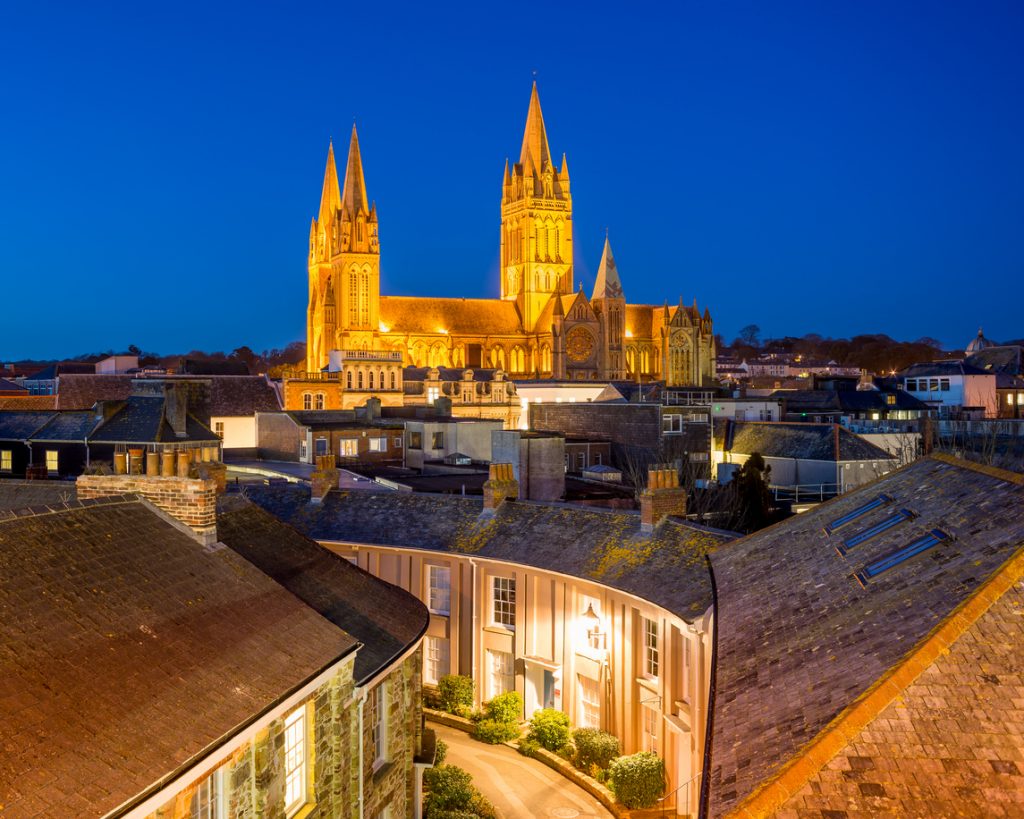
Compared to other destinations in the UK, Cornwall can be rather expensive! In the touristy areas, expect to pay around £6-7 for a pint of beer and about £20 for a main course in a restaurant. Hotels often cost upwards of £150 per night in the summer months.
I once stayed in a shepherd’s hut in Holsworthy in Devon, right next to the Cornish border, and the owner said “I could charge 50% more if my farm was on that hill over there; you can charge a premium for Cornwall!”.
However, Cornwall’s actually one of the poorest parts of the country, and people who are from Cornwall often face economic hardships due to the inflated cost of food and housing along with the lack of industries.
My family used to be Cornish tin miners, but this industry is long gone, and the biggest sector by far is nowadays tourism. However, this is hugely seasonal (which is one of the main reasons why I try to encourage people to visit places like St Ives in winter).
I’d also highly recommend using as many local businesses as possible while you’re in Cornwall to support the economy.
Lack of nightlife
This isn’t necessarily a drawback, depending on your travel style, but outside of Newquay, Cornwall is not a nightlife destination.
If you enjoy atmospheric pubs, you’ll find plenty, but if you want to go on a clubbing holiday, either stay in Newquay or head somewhere else in the UK! Bristol is my favourite nightlife destination in the UK.
Location
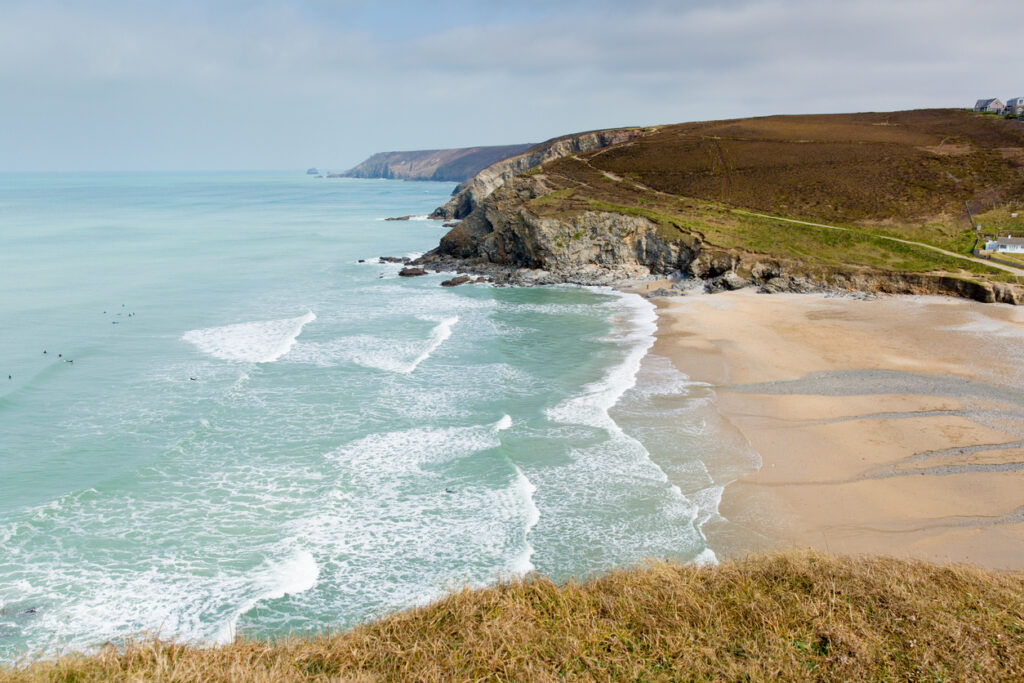
Cornwall’s main appeals – its dramatic landscapes and authentic Celtic culture are all thanks to its relative isolation; but its location is a drawback for many visitors!
It’s around a five-hour drive from London and Birmingham, a three-hour drive from Bristol and a six to seven (or more!) hour drive from places like Manchester, Liverpool and Leeds. I feel very lucky that I only live in the next county over!
Cornwall has a train line (you can even take a sleeper train to Penzance from London), but rail tickets can be pricey.
However, that’s not to say at all that the white sand beaches of Cornwall aren’t worth visiting – I just wouldn’t recommend heading there for just a weekend – try to do a longer trip, perhaps a week’s road trip, if possible!
Tips for Avoiding Crowds in Cornwall
Here are my main tips for avoiding crowds in Cornwall!
- Visit outside of peak season: As I mentioned before, my favourite times to visit Cornwall are May or September. Think mild weather (perfect for hiking) and thinner crowds. The sea’s still warm(ish) in September too!
- Explore off-the-beaten-path locations: I’ve put together all of my favourite hidden gems in Cornwall in this blog post, which will help you to see places with fewer crowds.
- Visit early in the day: If you’re determined to visit a popular attraction, try to go early in the morning; it’s best to visit places like Tintagel Castle as it opens.
Alternatives to Cornwall
Have you decided Cornwall isn’t for you?
While I adore the region, the price, distance from other British cities and weather can make some question whether it’s worth the trip.
Here are a few alternative places!
Devon
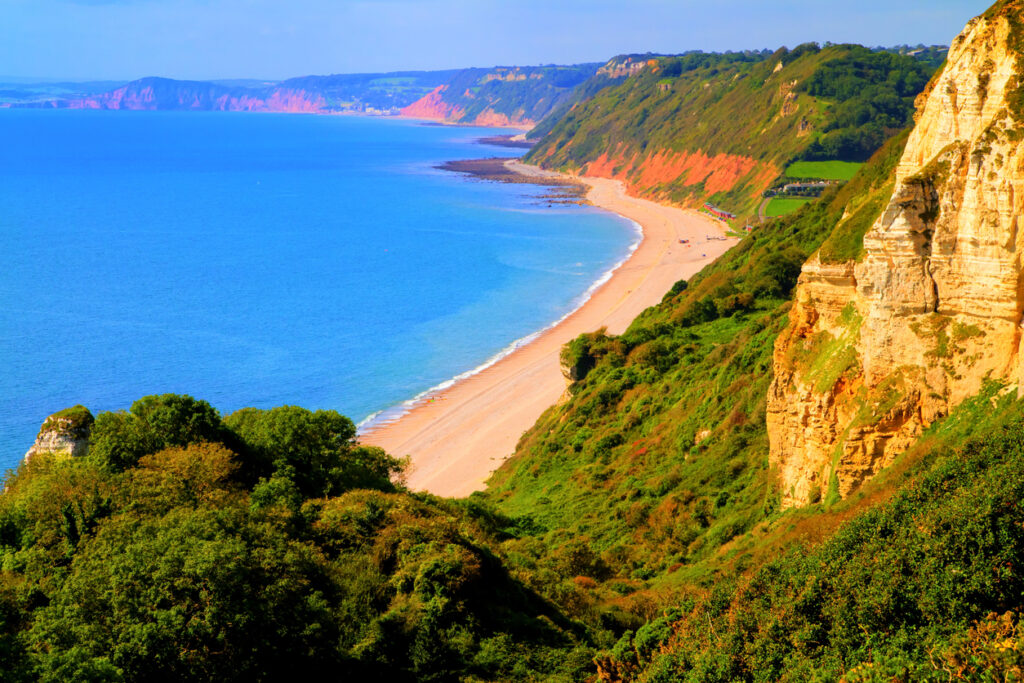
Devon is cheaper and usually quieter than Cornwall – I live in Exmouth which is much more budget-friendly and has equally stunning beaches (it’s the start of the Jurassic Coast).
You could also head inland to Dartmoor or north to the surfing beaches around Woolacombe. Check out all my Devon posts here.
Dorset
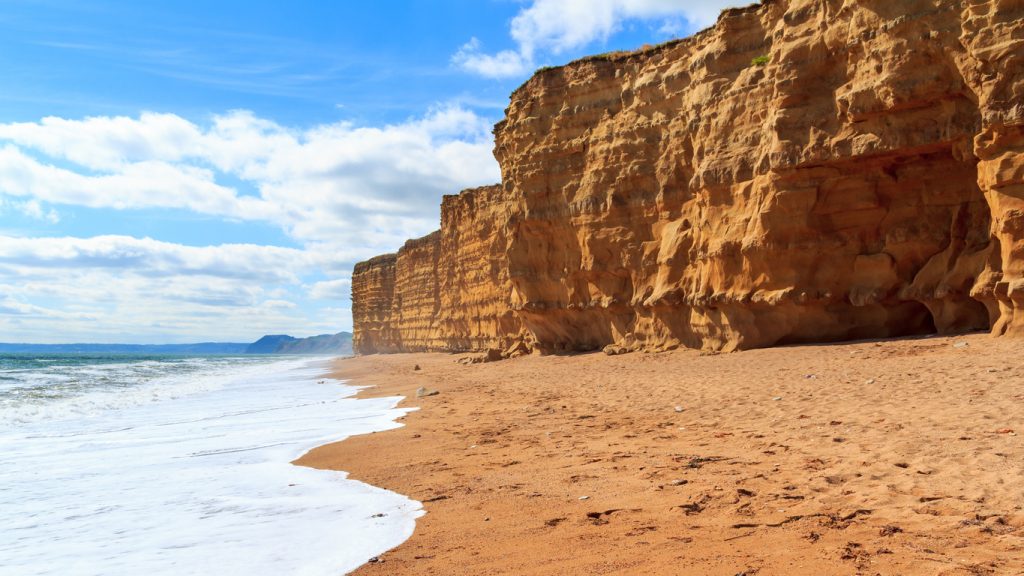
Dorset’s the county along from Devon, and its coastline is all Jurassic Coast.
It can be busy here in the summer months, but it’s much closer to London if you’re driving from there, plus the weather is a little less erratic than Cornwall’s!
Check out my list of the best places to visit in Dorset.
South Wales
South Wales is a big place, with popular and less popular spots, but you can enjoy hiking Offa’s Dyke, the history of Monmouth, the charm of Tintern Abbey or the beauty of the Gower Peninsula.
It’s a lot closer to places like Bristol and Birmingham than Cornwall.
FAQs about whether to visit Cornwall
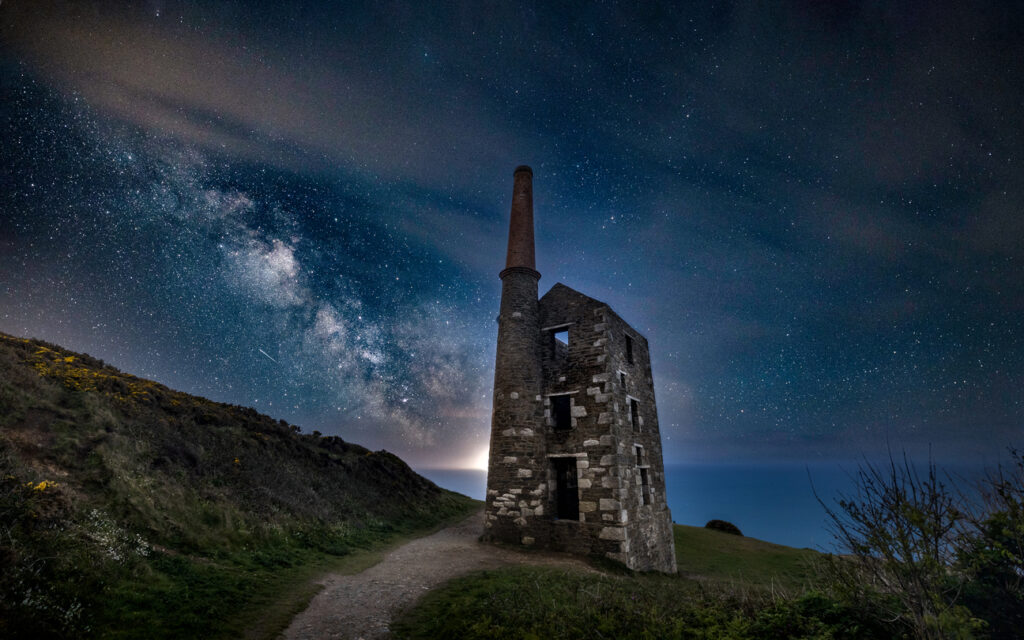
Is Cornwall expensive?
As with many tourist destinations, prices in Cornwall can be higher than in other parts of the UK, especially during peak season.
However, there are plenty of ways to save money, such as staying on campsites, taking advantage of free attractions like beaches or walking trails, and making your own food.
Is Cornwall family-friendly?
Yes, Cornwall is a great destination for families. With its beautiful beaches, family-friendly attractions like the Eden Project and the Lost Gardens of Heligan, and plenty of opportunities for outdoor activities, including watersports and beautiful walks, there’s something for everyone to enjoy.
Is Cornwall a good destination for solo travellers?
Yes, Cornwall can be a great destination for solo travellers; it has a few welcoming hostels and campsites are usually quite social places. There’s a huge range of activities that solo travellers might enjoy, from exploring places like Truro and Falmouth to taking part in surfing lessons (a prime chance to visit other travellers!).
So, is Cornwall worth visiting?
Beaches, moorland, culture and history all merge together to create the incredible land of Cornwall. It’s one of the UK’s best tourist destinations for good reason; there’s nowhere else in the country that has such breathtaking beaches, with a buzzing holiday atmosphere in the summer months!
However, it’s worth considering the pros and cons before planning a trip here. If you’ve read through the post and have decided that YES, you want to visit Cornwall, welcome! You can find all my Cornwall articles here.
Feel free to drop me a message on Instagram if you have any questions, I’m always happy to help!

